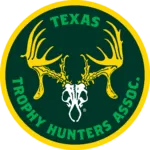
One of the big fights shaping up in Congress is over proposed reforms to the Equal Access to Justice Act (EAJA). The act was designed to help plaintiffs recover their litigation costs when they won lawsuits against the government. It was designed to help average citizens obtain help in legal representation. Like many well-intended programs, EAJA was perverted by groups who saw it as a way to sue the government for gain. That perversion has been especially profitable for the animal rights and environmental advocacy groups in suits against the United States Fish and Wildlife Service and other agencies. They sue on minor procedural issues, win and collect both settlements and EAJA reimbursements. Nice deal, huh? Unless you happen to believe that the money in government coffers are supposed to go toward other things such as wildlife management and conservation programs. It has also been pointed out that it results in judges dictating the course of wildlife management in America, rather than wildlife officials. Don’t like a decision? Find a procedural issue -and sue. The resultant delays while the matter’s being litigated may render the decision moot, but the final outcome might prove equally profitable. There are net worth qualifiers that keep the majority of businesses and wealthy individuals from abusing the system. But the system doesn’t apply the same standards to non-profits. So, certain non-profit groups essentially use EAJA to “sue up” funds. Since the program’s not really monitored, there’s no way to know how much has been spent—and reimbursed in the program. There’s no real way to know, although the Boone and Crockett Club has estimated that as much as $50 million in EAJA funds are spent annually from litigation by the top 20 environmental litigants. To help fight that abuse, Representative Cynthia Lummus of Wyoming introduced H.R. 1996. Wyoming Senator John Barrasso introduced a companion version in the U.S. Senate. They share the same title “Government Savings Litigation Act”. H.R. 1996, if passed, would make EAJA consistent with 205 other federal fee shifting statutes, all of which limit 501(c)(3) not-for-profit organizations to the same eligibility requirements as private citizens and small businesses. The Boone and Crockett Club deserves a serious “atta boy” from the rest of us for investigating, proving and pursuing this systemic abuse. They have subsequently been joined in support for H.R. 1996 by a coalition of 37 member organizations of the American Wildlife Conservation Partners, the largest network of fish and wildlife groups in the country. Collectively, the AWCP represents some eight million sportsmen and conservationists. Nothing that’s been tried before has done anything to slow the tendency of the radical animal rights and environmental groups to sue at the drop of the proverbial hat. But H.R. 1996 shines a glaring light on at least one reason why they are not the least bit reluctant to go to court: they’re benefitting from the process. We should all join in letting our elected officials know that H.R. 1996 is one of those acts that they can’t brush aside. It is one instance where cost-savings can be used to right an error in law, and help both conservation and wildlife.—courtesy Outdoor Wire


